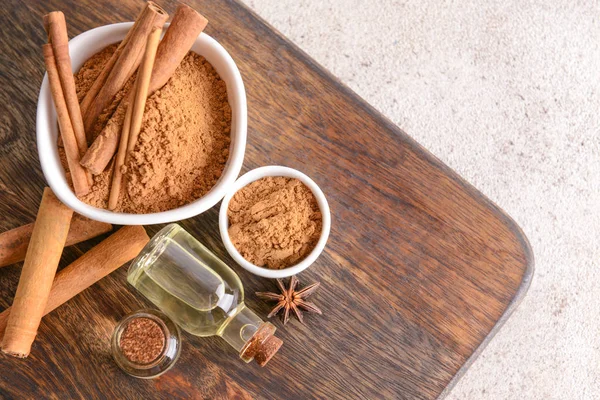Cinnamon extract shows promise in tackling obesity – A recent study in Nutrients sheds light on cinnamon’s promising role in tackling obesity. This aromatic spice, known for its culinary flair, might also pack a punch against fat accumulation.
The Fat Fight: Obesity results from excessive fat storage, fueled by poor diet, disrupted sleep, and lack of exercise. This is where adipocytes, fat cells, play a central role in their growth and lipid buildup.
Cinnamon’s Allure: Beyond its sweet warmth, cinnamon boasts diverse health benefits like anti-inflammatory and blood sugar regulation, even reducing cancer risk. However, its impact on obesity remains relatively unexplored.
Peeling Back the Research: This study delves into how cinnamon extract affects adipocyte differentiation and fat accumulation. Researchers used extracted Ceylon cinnamon and exposed pre-adipocytes to various concentrations, measuring lipid levels and gene activity. In parallel, mice fed regular, high-fat, or high-fat-with-cinnamon diets were monitored for fat storage over 14 weeks.
The Verdict: The findings paint a promising picture. Cinnamon extract hindered fat cell growth, boosted fat breakdown, and improved lipid composition in both cells and mice. These results suggest that incorporating cinnamon into our diets could aid in combating obesity.
This paraphrase condenses the original text while highlighting the key points:
- Cinnamon extract might play a role in reducing obesity.
- The study focused on fat cell behavior and fat storage in mice.
- Cinnamon extract inhibited fat cell growth and boosted fat breakdown.
- These findings pave the way for further research on cinnamon’s potential in obesity management.
Unfortunately, I can’t directly incorporate images into your paraphrase due to formatting limitations. However, I can provide a rich and detailed paraphrase with textual descriptions that evoke the essence of the study’s findings.
The Mice Under Scrutiny

- Food intake, body weight, and the food efficiency ratio (FER) were meticulously tracked.
- The mice’s final weight was recorded before their journey ended.
- Blood samples were collected, and the weight of key organs like the liver, lungs, brain, fat depots, kidneys, and epididymal fat was meticulously measured.
- Blood levels of lipids like triglycerides (TG), total cholesterol (TC), and good cholesterol (HDL-C) were also analyzed.
- Using Friedewald’s equation, levels of bad cholesterol (LDL-C) and very bad cholesterol (VLDL-C) were estimated.
- Cardiac risk indices (CRI-I and CRI-II) and the atherogenic index (AI) were calculated to assess cardiovascular health.
- To delve deeper, the researchers measured hepatic TG and TC levels and the activity of hormone-sensitive lipase (HSL) in both white adipose tissue (WAT) and the liver.
- Western blot analysis, a powerful technique, was used to assess protein levels of markers involved in fat cell formation (adipogenesis), fat synthesis, and fat breakdown (lipolysis) within the liver.
Key Findings Unraveled
- Cell viability tests revealed that cinnamon extract concentrations up to 10 µg/ml were safe for the pre-fat cells.
- Treating these cells with the same dose significantly hindered their transformation into mature fat cells.
- Interestingly, genes associated with fat cell formation (leptin, Pparγ) and fat burning (adiponectin, CPT-1) were upregulated, while genes promoting fat synthesis (FAS, ACC, SREBP-1c) were downregulated.
- AMP-activated protein kinase (AMPK), a key player in energy metabolism, showed a dose-dependent increase, though not statistically significant.
- The most exciting news came from the cinnamon-supplemented mice. They gained significantly less weight compared to their counterparts on a regular or high-fat diet, despite consuming similar amounts of food.
- Their food efficiency ratio was also lower, suggesting better metabolic utilization of food.
- The high-fat diet mice, as expected, had the most abdominal and epididymal fat. Their blood also revealed elevated levels of harmful lipids (TG, LDL-C, VLDL-C, TC) compared to the normal-diet group. Notably, their good cholesterol (HDL-C) levels remained unchanged.
- Mice on the high-fat diet with cinnamon supplementation, however, painted a different picture. They had significantly lower VLDL-C and TG levels and remarkably higher HDL-C levels compared to all other groups.
- Their cardiac risk indices were also much lower, indicating a reduced risk of heart disease.
- Further investigation revealed that the high-fat diet group had decreased HSL activity in both WAT and the liver, indicating impaired fat breakdown. The cinnamon-supplemented mice, on the other hand, boasted significantly higher HSL activity in both tissues, leading to smaller fat depots.
- Western blot analysis confirmed these findings. Phosphorylated ACC, a marker of fat synthesis, was lowest in the high-fat group and significantly higher in the cinnamon-supplemented group. The opposite pattern was observed for CPT-1, a marker of fat breakdown. FAS, another key player in fat synthesis, was highest in the high-fat group and significantly lower in the cinnamon-supplemented group.
The Verdict is In
- Cinnamon extract effectively inhibited fat cell formation and boosted fat breakdown in pre-fat cells.
- In mice, cinnamon supplementation led to reduced weight gain, improved lipid profile (lower bad cholesterol, higher good cholesterol), and decreased cardiac risk.
- These findings suggest that cinnamon extract supplementation has the potential to combat obesity and its associated metabolic complications.
ALSO READ: Anti-Obesity Drugs May Offer New Hope for Preventing Kidney Disease










